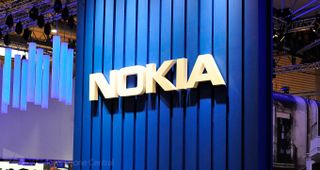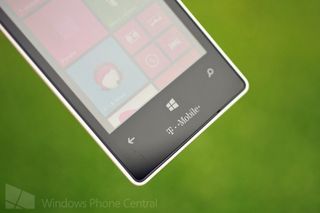Microsoft’s influence on Nokia now said to be less than before acquisition deal

Although the Microsoft / Nokia agreement announced early last month caused shockwaves in the industry, many analysts have rightly been cautious about the acquisition of Nokia’s hardware division. That’s because the deal has not been finalized nor approved, by anyone, and the process is not expected to be completed until early 2014.
The question on many minds though, including our own, is what are things like now between the two companies? One stream of thought is that Microsoft and Nokia are going forward, working on devices, and that they have begun to merge divisions, knocking down those barriers that Belfiore referred to in an interview with CNET. Better phones, more exciting software, right?
However, Hal Berenson, a retired Distinguished Engineer and General Manager at Microsoft, says it is just the opposite. In an insightful blog post he notes that Microsoft is having little to no influence on anything Nokia is doing right now—in fact, it probably has less power than before the deal was announced.

The reason? Anti-trust law. The companies can plan, but they cannot execute.
According to Berenson, both companies must act like the deal won’t go forward. Therefore, any direction Microsoft might give Nokia on new hardware, like the rumored Lumia 2520 tablet, could be seen as collusion should the acquisition be denied. Both companies need to be on their best behavior during these next few months, operating as independent businesses, while regulatory agencies pore over every aspect of the two massive organizations. Berenson goes on:
“Even some activities that the two were pursuing, or planning to pursue going into the launch of GDR3 or even WP8.1, might get scaled back as lawyers advise that they might now invite regulatory scrutiny.”
So while product lines and advancements between the two companies will be intriguing after the deal is approved, don’t expect much during these next few months. Berenson adds that this may be why Nokia can’t cancel the Lumia 2520, even if it seemingly clashes with Microsoft’s Surface 2 plans.

That’s important because of sensational articles like those found recently on Bloomberg, who wrote a report titled “Microsoft’s $7.2 Billion Nokia Bet Not Luring Apps”. The announced deal, which was barely 30-days old at the time, evidently warranted an early evaluation by Bloomberg on its success. In the trash piece, Bloomberg feigns research by interviewing “a dozen developers” and concluding “Microsoft Corp. (MSFT)’s $7.2 billion pairing with Nokia Oyj (NOK)’s handset business is failing to win over the software developers who are crucial to its success.”
Get the Windows Central Newsletter
All the latest news, reviews, and guides for Windows and Xbox diehards.
The article didn’t even bother to consider the impact of BlackBerry imploding, but evidently a non-approved acquisition with no material impact was fair game.
Make no mistake, the real story between Nokia and Microsoft has not begun. So while some developers may not be “convinced”, we’re not exactly sure what they are using to evaluate the deal, since literally nothing has come of it yet.
Microsoft and Nokia have made huge strides with Windows Phone in 2013, but the real story of Microsoft’s acquisition of Nokia’s hardware division won’t happen until mid-2014. Anyone who tells you otherwise, is full of it.
Source: Hal's (Im)Perfect Vision; Bloomberg

Daniel Rubino is the Editor-in-chief of Windows Central. He is also the head reviewer, podcast co-host, and analyst. He has been covering Microsoft since 2007, when this site was called WMExperts (and later Windows Phone Central). His interests include Windows, laptops, next-gen computing, and watches. He has been reviewing laptops since 2015 and is particularly fond of 2-in-1 convertibles, ARM processors, new form factors, and thin-and-light PCs. Before all this tech stuff, he worked on a Ph.D. in linguistics, watched people sleep (for medical purposes!), and ran the projectors at movie theaters because it was fun.
